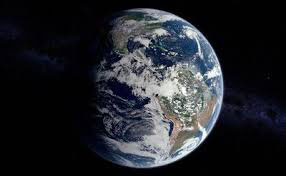Column: At the world’s edge

Feb 7, 2019
Have you ever stared long enough at a map that you notice those weird blotches and dotted lines? These are likely disputed territories, or unrecognized countries. “At the world’s edge” looks at some of these contested regions and examine them to better elucidate why these international irregularities exist and why they endure.
Nations are often judged by their capitals. A country with poorly maintained services and infrastructure in the countryside or coastal villages, but with an immaculate, clean and shiny capital city with broad streets and spacious parks will probably be judged as corrupt and spendthrift. Such is often the perception of a regime such as Pakistan.
What, then, is to be said of a country which treats its capital as a sort of alien territory, an occupied province with few rights of its own, which is ultimately subservient to the national government and often neglected as a result of this?
This, unfortunately, is the state of our very own stateless capital, the District of Columbia.
The federal capital district, three-fourths the size of Cleveland, is situated between Maryland and Virginia on the Potomac River. It was not intended by the founding fathers of the U.S. to be a permanent settlement, but instead a temporary abode of the nation’s elected representatives in the federal government.
When they started to live there permanently, however, some problems became readily noticeable.
Firstly, since the District of Columbia is not a state or within a state, it has no representation in the Senate. The electorate chooses a single non-voting delegate of the House of Representatives, but this is little consolation.
It is easy to understand, therefore, why many residents of the city would adopt “Taxation Without Representation” as a motto of their frustration. It is commonly seen on signs during protests in the capital.
Secondly, the capital has few rights to manage its own affairs. There is a mayor and a legislative council, which function practically as they would in any American city. Their authority is given to them by the federal government, not by a constitution of the city itself, as is the case in the 50 states.
The U.S. Congress, per Article I, Section 8 of the Constitution, holds the ability to enact “exclusive legislation in all cases whatsoever” for the capital, though in recent history they generally leave them with autonomy over metropolitan matters.
Due to the weight of these mounting issues, it is no surprise that various solutions have been proposed for the district, both emanating from the people thereof and from outside observers.
The most common, and most popular, solution is to admit Washington D.C. as the 51st State of the Union. This would solve the aforementioned issues, but would complicate federal law relating to federal buildings, parks and monuments. Not surprisingly, since the capital votes overwhelmingly for Democratic candidates in elections, the current divided Congress will almost certainly not allow for this plan to go forward.
Whatever solution, if any, solves the D.C. dilemma, we should remember that we should look inward before criticizing the institutional arrangements of other countries. If our own capital cannot vote for representatives, then what does that say about the country as a whole? If the head is ill, then the rest of the body suffers as well.











